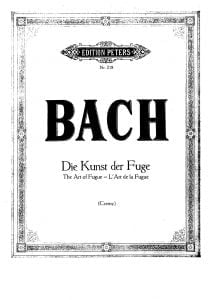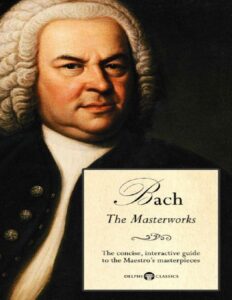- J.S. Bach The six cello suites performed by Pau Casals, 1936-39
- Tracklist
- Pau Casals biography
- Introduction
- Chronology
- United Nations speech – 1971
- WORDS OF PAU CASALS AT THE UNITED NATIONS – 24 October 1971
J.S. Bach The six cello suites performed by Pau Casals, 1936-39
Tracklist
Suite No. 1 In G, BWV1007 16:54 1-1 Prelude 2:28 1-2 Allemande 3:40 1-3 Courante 2:32 1-4 Sarabande 2:22 1-5 Menuet I & II 3:14 1-6 Gigue 1:50
Suite No. 2 In D Minor, BWV1008 19:41 1-7 Prelude 3:43 1-8 Allemande 3:54 1-9 Courante 2:16 1-10 Sarabande 4:06 1-11 Menuet I & II 3:19 1-12 Gigue 2:35
Suite No. 3 In C, BWV1009 20:14 1-13 Prelude 3:28 1-14 Allemande 3:45 1-15 Courante 3:14 1-16 Sarabande 3:30 1-17 Bourrée I & II 3:23 1-18 Gigue 3:04
Suite No. 4 In E Flat, BWV1010 22:29 1-19 Prelude 4:15 1-20 Allemande 3:45 1-21 Courante 3:55 1-22 Sarabande 4:09 1-23 Bourrée I & II 3:37 1-24 Gigue 2:35
Suite No. 5 In C Minor, BWV1011 22:31 2-1 Prelude 7:18 2-2 Allemande 3:17 2-3 Courante 2:03 2-4 Sarabande 2:45 2-5 Gavotte I & II 4:29 2-6 Gigue 2:20
Suite No. 6 In D, BWV1012 27:58 2-7 Prelude 5:06 2-8 Allemande 7:31 2-9 Courante 3:42 2-10 Sarabande 4:17 2-11 Gavotte I & II 3:04 2-12 Gigue 3:59
2-13 Adagio In A Minor From Toccata, Adagio And Fugue In C Major, BWV 564 Arranged By – Siloti* 3:53
2-14 Musette (Gavottes I And II) From English Suite No. 6 In D Major, BWV 811 Arranged By – Pollain* 3:45
2-15 Komm, Süsser Tod, BWV 478 Arranged By – Siloti* 3:27
2-16 Andante From Sonata No. 2 For Unaccompanied Violin, BWV 1003 Arranged By – Siloti* 3:36
2-17 Air From Suite No. 3 In D, BWV 1068 Arranged By – Siloti* 3:47
Composed By – Johann Sebastian Bach Engineer [Restorations] – Ward Marston Liner Notes – Tully Potter Notes Tracks 1-1 to 1-6: Recorded 2.VI.1938, Paris Tracks 1-7 to 1-18: Recorded 25.XI.1936, Abbey Road Studios, London Tracks 1-19 to 1-24: Recorded 13.VI.1939, Paris Tracks 2-1 to 2-6: Recorded 13-16.VI.1939, Paris Tracks 2-7 to 2-12: Recorded 14, 15..VI.1939, Paris Tracks 2-13 to 2-17: Recorded 3.VI.1938, Paris Total playing time: 148:47

Pau Casals biography
“Music, this marvellous universal language, would have to be a source of communication between all people. “
Introduction
Pau Casals (Pablo Casals as he was commonly called in English) was one of the 20th century’s greatest cellists, internationally recognized as one of the finest performers and orchestra conductors of his times.
Born in El Vendrell on 29 December 1876, he showed a great sensitivity for music from childhood. His father, himself a musician, taught Pau Casals his first notions of music, which Casals would go on to extend through studies in Barcelona and Madrid. At the tender age of twenty-three, he started out on his professional career and performed in the world’s most famous concert halls.
As a performer, he made innovative changes in the way of playing the cello, introducing new technical and expressive possibilities. As a conductor too, he sought depth of expression – the musical essence which he achieved with the cello. Pau Casals was also a teacher and a composer, writing works such as the oratorio “El Pessebre” (The Manger), which became a veritable hymn to peace.
The outcome of the Spanish Civil War obliged him to go into exile, settling first in Prades (France) and later in San Juan, Puerto Rico.
In addition to his extraordinary career as a musician, Pau Casals was always a staunch defender of peace and freedom. His numerous benefit concerts, his commitment to humanitarian actions and his various speeches at the United Nations characterized him clearly as a man of peace.
Pau Casals died in 1973 at the age of ninety-six in San Juan, Puerto Rico. His remains now rest in the cemetery of El Vendrell.
Chronology
United Nations speech – 1971
Over the course of his life, Pau Casals struggled constantly for peace, justice and freedom. In recognition of his stance, in 1971 the Secretary-General of the United Nations, U-Thant, awarded Pau Casals the U.N. Peace Medal. The speech that Pau Casals gave to express his gratitude for this distinction, and afterwards his performance of “El cant dels ocells” (The Song of the Birds), form one of the most impressive testimonies to his human dimension.
WORDS OF PAU CASALS AT THE UNITED NATIONS – 24 October 1971
This is the greatest honour of my life. Peace has always been my greatest concern. I learnt to love it when I was but a child. When I was a boy, my mother – an exceptional, marvellous woman -, would talk to me about peace, because at that time there were also many wars. What is more, I am Catalan. Catalonia had the first democratic parliament, well before England did. And the first United Nations were in my country.
At that time – the Eleventh Century – there was a meeting in Toluges – now France – to talk about peace, because in that epoch Catalans were already against, AGAINST war. That is why the United Nations, which works solely towards the peace ideal, is in my heart, because anything to do with peace goes straight to my heart.
I have not played the cello in public for many years, but I feel that the time has come to play again. I am going to play a melody from Catalan folklore: El cant dels ocells – The Song of the Birds. Birds sing when they are in the sky, they sing: “Peace, Peace, Peace”, and it is a melody that Bach, Beethoven and all the greats would have admired and loved. What is more, it is born in the soul of my people, Catalonia.
(English translation of the original version in Catalan, from Enric Casals’ book “PAU CASALS, dades biogràfiques inèdites, cartes íntimes i records viscuts”, Ed. Pòrtic, Col. Memòries, Barcelona, 1979.)
Browse in the Library:
Or browse in the categories menus & download the Library Catalog PDF:

